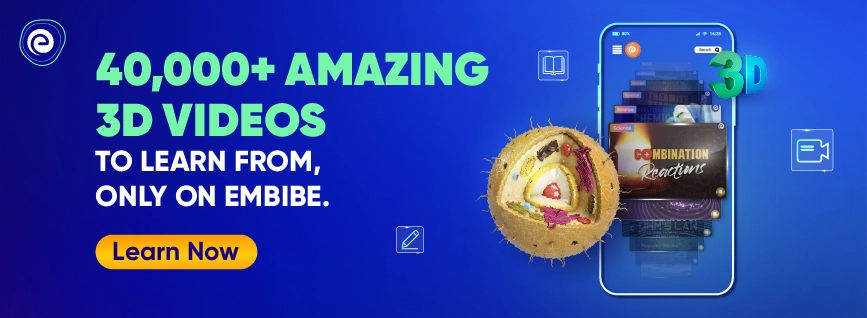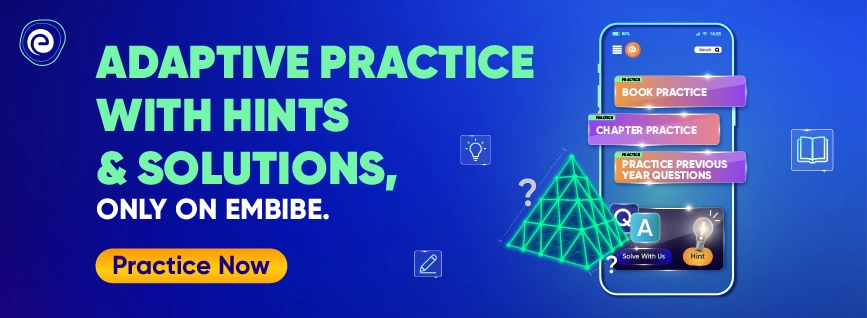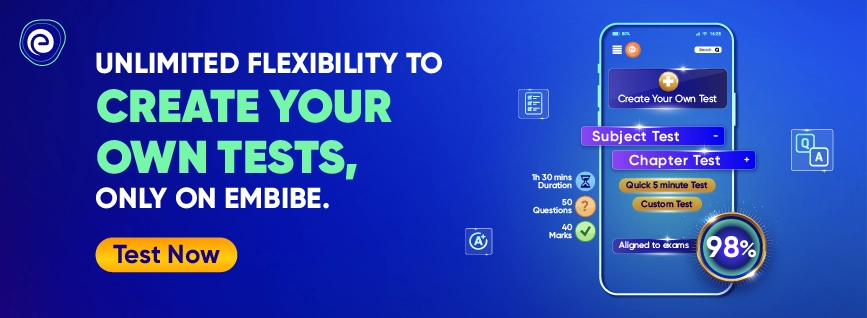- Written by gnanambigai
- Last Modified on 13-12-2024
Cambridge Board Lower Secondary Stage 8 Exam 2025
Several colleges worldwide require a combined degree of Cambridge IGCSE and Cambridge International A Levels to meet their eligibility criteria for admission. Many well-known colleges in the United States and Canada accept students with a grade ‘C’ or higher in Cambridge IGCSE. Cambridge IGCSE is considered equivalent to GCSE in countries such as the United Kingdom.
While making admission decisions, universities in the United Kingdom look at applicants’ Cambridge IGCSE results. It provides an alternative path for many individuals who want to continue their education in these countries. The IGCSE exam differs from other board exams because it emphasises practical skills. Students must concentrate on applying various ideas and case studies during the exams as they are graded based on analytical skills.
Cambridge Board Lower Secondary Stage 8 Exam Summary
The board’s certification is widely recognised by numerous institutions worldwide, and in many cases, it is the means of entrance to the institute. Many institutions, particularly in the United Kingdom, the United States, and Canada, demand a combination of Cambridge International A Levels and Cambridge IGCSE to get admission.
IGCSE is a two-year curriculum compared to one year for ICSE, CBSE, and state education boards. IGCSE allows students to choose their desired topics to a wider extent, including subjects of commerce and many humanitarian subjects that most other popular boards only provide at the high school level.
It also provides the IGCSE Core and IGCSE Extended Courses, recognising that not all students have the same affinity or interest in all topics. IGCSE has five subject categories, each with multiple subjects to choose from:
- Languages (Group 1): First language, Second language, Foreign language, etc.
- Humanities and Social Sciences (Group 2): Geography, English Literature, History, etc.
- Group 3 includes the Sciences: Biology, Chemistry, Physics, etc.
- Group 4 consists of Mathematics: Mathematics, Additional Mathematics, etc.
- Group 5 consists of the creative, technical, and vocational fields: Accounting, Business Studies, Computer Studies, Music, etc.
| Group |
Subjects |
| English (Language and Literature) |
English- First Language
English- Second Language
English- Literature
World Literature |
| Mathematics |
Mathematics
Mathematics- Additional
International Mathematics |
| Sciences |
Agriculture
Biology
Chemistry
Environmental Management
Physical Science
Physics
Science- Combined
Science- Co-ordinated |
| Language |
First Language
Afrikaans
Arabic
Bahasa Indonesia
Chinese
Czech
Dutch
French
German
Japanese
Korean
Portuguese
Russian
Spanish
Thai
Turkish
Second Language
Afrikaans
Chinese
Hindi
IsiZulu
Kazakh
Foreign Language
Arabic
Dutch
French
German
Greek
Indonesian
Italian
Japanese
Malay
Mandarin Chinese
Portuguese
Spanish
Spanish- Literature |
| Humanities & Social Sciences |
Bangladesh Studies
Development Studies
Economics
Geography
Global Perspectives
History
India Studies
Islamiyat
Latin
Pakistan Studies
Religious Studies
Sociology |
| Business, Technical and Creative |
Accounting
Art & Design
Business Studies
Child Development
Computer Science
Design & Technology
Drama
Enterprise
Food & Nutrition
Information & Communication Technology
Music
Physical Education
Travel & Tourism |
On each topic, the certificate shows the grades earned, not whether the student passed or failed. Five ‘C’ or above marks show the candidates’ willingness to pursue +2 level qualifications such as the Class 12 CBSE, IB Diploma, Advanced Placement Diploma (USA), and so on.
Cambridge Board Lower Secondary Stage 8 Brochure
Students can get information such as the exam pattern, syllabus, practical exams exam dates, etc., in the Cambridge Board brochure on the official website.
Official Website Link
http://www.cambridgeinternational.org
Cambridge Board Lower Secondary Stage 8 Exam Pattern 2025
The Cambridge Board offers a diverse range of subjects and allows schools to choose how to present them to students. They assist schools in developing a curriculum that is appropriate for their culture, context, and ethos and that they can tailor to their specific needs. The exam pattern contains the break-up of the marking scheme. Below we have provided the Cambridge Board Lower Secondary Stage 8 exam pattern:
Exam Pattern Details - Scoring Pattern (+/- Marking)
Cambridge Lower Secondary is a Cambridge University programme that aims to help students (aged 11-14) take their learning experience to the next level. The programme provides learners with a clear path and assists them in tracking their progress through the ‘Cambridge Pathway’ based on age-appropriateness. The Board evaluates students’ grades in terms of their GPA equivalents as follows:
| IGCSE Grade |
GPA Equivalent |
| A+ |
4.3 |
| A |
4.0 |
| B |
3.7 |
| C |
3.0 |
| D |
2.3 |
| E |
2.0 |
| F |
1.3 |
| G |
1.0 |
| U |
0.0 |
- The “U” stands for Ungraded, and in order to complete the course and continue their education, students must get at least a “C” in their five core topics.
- The Core Curriculum is targeted and rated for students anticipated to be in the C to G range, whereas the Extended Curriculum is aimed and graded for students projected to be in the A* to E level.
- Core and extended curricula are not offered in some disciplines, and only one ability range is provided. The entire grade range is accessible in these disciplines.
- Students are classified into one of three groups based on the Cambridge Board Lower Secondary Stage 8 results:
| Category |
Requirements |
| Distinction |
A or higher in 5 subjects and C or higher in 2 |
| Merit |
C or higher in 5 subjects and F or higher in 2 |
| Pass |
G or higher in all 7 |
Cambridge Board Lower Secondary Stage 8 Exam Syllabus 2025
Students will receive a broad and balanced education from Cambridge Lower Secondary, which will help them succeed in school, work, and life. With ten subjects to choose from, including English, Math, and Science, they will have plenty of opportunities to cultivate creativity, expression, and well-being in a variety of ways. The Cambridge Lower Secondary Programme is designed for students aged 14 to 16. It develops learners’ abilities in English, Hindi, Computers, Mathematics, and Science.
Lower Secondary Stage 8 Mathematics Syllabus
In the Lower Secondary Stage 8 Maths exam for the Cambridge Board, students can achieve excellent results. They can increase their problem-solving effectiveness and efficiency by practicing sample problems and having clear conceptualizations. The Cambridge Lower Secondary Maths Stage 8 syllabus is given below. Also explore Cambridge Lower Secondary Maths Stage 8: Workbook.
| Sr. No. |
Chapter Name |
| 1 |
Rational Numbers |
| 2 |
Linear Equations in one variable |
| 3 |
Understanding Quadrilaterals |
| 4 |
Practical Geometry |
| 5 |
Data Handling |
| 6 |
Squares and Square roots |
| 7 |
Cubes and Cube roots |
| 8 |
Comparing Quantities |
| 9 |
Algebraic Expressions and Identities |
| 10 |
Visualizing Solid Shapes |
| 11 |
Mensuration |
| 12 |
Exponents and Powers |
| 13 |
Direct and Inverse Proportions |
| 14 |
Factorization |
| 15 |
Introduction to Graphs Chapter 16- Playing with Numbers |
Lower Secondary Stage 8 Science Syllabus
Embibe’s 3D videos can enhance how much fun and intriguing science can be to study. Students can also study the complete curriculum by using Embibe to practcse example questions and mock exams. The Cambridge Lower Secondary Science syllabus is given below. Also explore Cambridge Lower Secondary Science Stage 8: Workbook & The Embibe Big Book for Science for Cambridge Board Stage 8.
| Sr. No. |
Chapter Name |
| 1 |
Crop Production And Management |
| 2 |
Microorganisms: Friend And Foe |
| 3 |
Synthetic Fibres And Plastics |
| 4 |
Materials : Metals And Non-Metals |
| 5 |
Coal And Petroleum |
| 6 |
Combustion And Flame |
| 7 |
Conservation Of Plants And Animals |
| 8 |
Cell – Structure And Functions |
| 9 |
Reproduction In Animals |
| 10 |
Reaching The Age Of Adolescence |
| 11 |
Force And Pressure |
| 12 |
Friction |
| 13 |
Sound |
| 14 |
Chemical Effects Of Electric Current |
| 15 |
Some Natural Phenomena |
| 16 |
Light |
| 17 |
Stars And The Solar System |
| 18 |
Pollution Of Air And Water |
Lower Secondary Stage 8 Social Science Syllabus
The Cambridge Board Lower Secondary Stage 8 Social Science syllabus for your reference is given below, and students must prepare accordingly with the syllabus to score good marks:
| Unit |
Chapters |
| History |
L2- From Trade to Territory
L3- Ruling the Countryside
L5- When People Rebel
L8- Women Caste and Reform
L9- The Making of the National Movement: 1870s-1947 L10- India after Independence |
| Geography |
L1- Resources
L2- Land, Soil, Water, Natural Vegetation and Wildlife Resources
L3- Minerals and Power Resources
L4- Agriculture
L5- Industries |
| Political Science |
L1- The Indian Constitution
L2- Understanding Secularism
L3- Why Do We Need a Parliament
L5- Judiciary
L6- Understanding our Criminal Justice System
L7- Understanding Marginalisation (Through Activity) |
Lower Secondary Stage 8 English Syllabus
Students should seriously study English in order to score as highly as possible on the Cambridge Board Stage 8 final test. They should ask the teacher to clarify any questions they have as soon as possible. We have provided the Cambridge Board Lower Secondary Stage 8 English syllabus below:
| Unit |
Chapters |
| Literature Reader |
Attila by R K Narayan
The Open Window by Hector Hugh Munro (Saki)
O, Captain! My Captain! by Walt Whitman
A Retrieved Reformation by O Henry
A Letter to Adolf Hitler by M. K. Gandhi
Lines Written in Early Spring by William Wordsworth
The Two Brothers
The Ballad of the Tempest by James T Field
A Day’s Wait by Ernest Hemingway
Our Old Home by Nathaniel Hawthorne
Where the Mind is Without Fear by Rabindranath Tagore
Julius Caesar by William Shakespeare |
| Grammar |
Modals
Active and Passive Voice
Reported Speech
Articles
Prepositions
Finite and Non-Finite Verbs
Perfect Continuous Tenses
Connectors
Defining and Non Defining Relative Clauses 10 Verbs
Vocabulary |
| Creative Writing |
Informal Letter
Formal Letter
Article
Report Writing
Dialogue Writing
Poster Making
Notice |
Lower Secondary Stage 8 Hindi Syllabus
The Cambridge Board Lower Secondary Stage 8 Hindi syllabus for your reference is given below, and students must prepare accordingly with the syllabus to score good marks:
| Section |
Topics |
| वसतं भाग -3 |
1. ध्वनि
2. लाख की चूऩियााँ
3. बस की यात्रा
4. दीवािों की हस्ती
5.नचट्ठियों की अिूठी दनु िया
6.भगवाि के डाककए
7.क्या निराश हुआ जाए
8.यह सबसे कट्ठठि समय िहीं
9.कबीर की सानखयााँ
10.कामचोर
11. जब नसिेमा िे बोलिा सीखा
12. सुदामा चट्ठरत
13. जहााँ पनहया है
14. अकबरी लोटा
15. सूर के पद
16. पािी की कहािी
17. बाज और सााँप
18. टोपी |
| कहािी सचय |
1.िहले पर दहला
2.प्रायनित का पुरस्कार
3.चीफ की दावत
4.नसग्नल
5.गााँव के गुणी राम
6.अिोखा सेिापनत
7.जादई शंख
8.मि की कोमलता
9.प्रनतबबंब
10.भूख का भय
11.भाग्य का खेल
12.तंत्र मंत्र |
| व्याकरण |
1.संज्ञा एवं उसके भेद
2.सवविाम एवं उसके भेद
3.नवशेषण एवं उसके भेद
4.किया
5.किया नवशेषण
6.संनि
7.समास
8.कारक
9.मुहावरे
10.पद –पट्ठरचय
11.उपसगव ,प्रत्यय
12.वाक्य संशोिि
13.अलंकार पट्ठरचय
14.रचिा के आिार पर वाक्य भेद
15.अिुच्छेद-लेखि
16.संवाद लेखि
17.नचत्र वणवि
18.नवज्ञापि
19.अिौपचाट्ठरक पत्र
20.अपट्ठठत गद्ांश
21.अपट्ठठत काव्यांश |
Study Plan to Maximize Score for Cambridge Board Lower Secondary Stage 8 Exam
“A good plan today is better than a perfect plan tomorrow”, and yes, that is true. The Cambridge Board Lower Secondary Stage 8 study plan provided below is designed to help students maximise their scores in the examination. The study plan includes a range of different activities, tips, and resources that should be used to achieve the best possible results.
Preparation Tips for Cambridge Board Lower Secondary Stage 8 Exam 2025
Students need a plan on how to cover the entire syllabus properly. It can be difficult to retain so much information from different subjects, thus, students can benefit by having a strategy that helps them memorise and revise the concepts. Here are some of the best preparation tips for the Cambridge Board Lower Secondary Stage 8 Exam:
- A detailed strategy and a plan for completing your studies are a must to secure good marks in any examination.
- You must have a good understanding of your strengths and weaknesses and should plan the preparations accordingly.
- Always keep a positive attitude and start your preparation journey as early as possible.
- Try practising as many problems as possible for chapters involving numerical and lots of calculations.
- If you face any difficulty while studying the Class 8 syllabus, try out the Embibe books for required help and information at any time. We have a very rich library of learning material and a question bank.
- Keep a well-disciplined timetable so that you can study every day in an orderly manner.
- Do not hesitate to ask your teachers or elders about the doubts you get while studying. Embibe provides students with doubt-clearing support round the clock.
- Students should switch between subjects to avoid boredom/ tiredness.
- Ensure you finish your whole syllabus well in advance and do not leave a lot to be completed for the exam time.
Detailed Study Plan for Cambridge Board Lower Secondary Stage 8 Exam
A detailed study plan is a well-structured plan that students create, listing their learning goals and time allocated to each subject. It is better to create a timetable for studying each day. Spend four to five hours each day by yourself in your studies in a well-planned manner. If you are studying mathematics, you definitely need a pen and paper to write and practice mathematical problems. While studying every subject, connect them to real-life situations. It will help you to remember every concept more easily.
Embibe has created well-crafted videos and practice tests on all the 8th standard topics, and if you need a better understanding of all the concepts, you can use them. Below we have provided a detailed study plan for this exam that will guide you towards better preparation:
- Mathematics: Students can score full marks in Mathematics. To achieve that, they must first build a strong foundation in the chapter topics. Later, they should solve sample problems on each topic and work on their weak areas. Students should also attempt mock tests to further stenghten their concepts.
- Social Science: In Cambridge Board Lower Secondary Stage 8 Social Science, students will learn about History, Civics, and Geography of India and the world. They must prepare topic-wise notes to retain key points like historical events, dates, chronology, people involved, etc. In Geography, students should practice maps also to correctly locate important places, resources, water bodies, etc. In Civics, Political Science chapters, it is important to remember the definitions, characteristics, advantages/disadvantages, etc., of the topics.
- Science: The best way to understand and remember the Science topics is watching Embibe 3D videos. Students are advised to make short notes on features, characteristics, properties, etc, for the concepts. They should also practice drawing neat diagrams with correct labelling, and to add them to their answers, to make them more impactful.
FAQs on Cambridge Board Lower Secondary Stage 8 Exam
Some of the frequently asked questions on the Cambridge Board Lower Secondary Stage 8 exam are as follows:
Q: What is IGCSE?
Ans: IGCSE stands for International General Certificate of Secondary Education.
Q: Can a Cambridge student appear in any of the national level examinations like IIT, NEET, etc.?
Ans: Yes. Cambridge’s Science and Mathematics course curriculum is based on the mandated syllabus for all Indian open admission examinations for undergraduate engineering and medicine programmes. All IITs recognise Cambridge and other specialised institutes as this programme includes more practicals and is application-based.
Q: Is the Cambridge Board Lower Secondary Stage 8 Exam a board-level exam?
Ans: The Cambridge Board Lower Secondary Stage 8 Test is a school-level exam organised by the different schools with the Cambridge Board’s assistance.
Q: How many times is the Cambridge Board Lower Secondary Stage 8 Exam held in a year?
Ans: The Cambridge Board Lower Secondary Stage 8 exam, which is held twice a year in May and October, can be scheduled by the schools.
Q: How many subjects are there in Cambridge Board Stage 8?
Ans: There are 5 subjects students can choose from in the groups offered in Cambridge.
List of Educational Institutions for Cambridge Board Lower Secondary Stage 8 Exam
Parents want to provide their kids the greatest education possible. Getting accepted to a reputable university is crucial for achieving that. The Cambridge Board is a well-known educational organisation that works to support students’ complete development. There are several schools running under the supervision of the Cambridge Board. Check the list below for a list of educational institutions:
| Centre |
Private candidates accepted |
| Aachi Global School |
No |
| Adamas International School |
No |
| Adani World School |
No |
| Aditya Birla World Academy |
No |
| Ahmedabad International School |
No |
| AIMEE International School |
No |
| Ajmera Global School |
No |
| Akal Academy |
No |
| B.D. Somani International School |
No |
| Baldwin International School |
Yes |
| Bangalore International School |
Yes |
| Bangalore Steiner School |
Yes |
| Basil Woods International School |
No |
| D Y PATIL INTERNATIONAL SCHOOL |
Yes |
| D Y Patil International School – Nerul |
No |
| D Y Patil International School, Worli |
Yes |
| D.R.S. International School |
Yes |
| Daffodil International School |
No |
| Daly College Indore |
No |
| Darbari Lal DAV Model School, Pitampura |
No |
| DAV Public School,Pushpanjali Enclave |
No |
List of Future Exams After Cambridge Board Lower Secondary Stage 8
Exams are one means to bring out students’ knowledge, interests, capacity, and potential in today’s competitive environment. To advance to the next grade, students must pass a school-wide examination. Aside from this school-level exam, several competitive exams are held nationally and globally each year. These assessments boost students’ confidence and enthusiasm for courses.
Some of the competitive exams in which grade 8 students can appear are as below:
- International Science Olympiad (ISO)
- International Maths Olympiad (IMO)
- English International Olympiad (EIO)
- General Knowledge International Olympiad (GKIO)
- International Computer Olympiad (ICO)
- International Drawing Olympiad (IDO)
- National Essay Olympiad (NESO)
- National Social Studies Olympiad (NSSO)
- National Talent Search Examination (NTSE)
- National Level Science Talent Search Exam (NLSTSE)
- Indian National Olympiad (INO)
- GeoGenius
- National Interactive Maths Olympiad (NIMO)














































